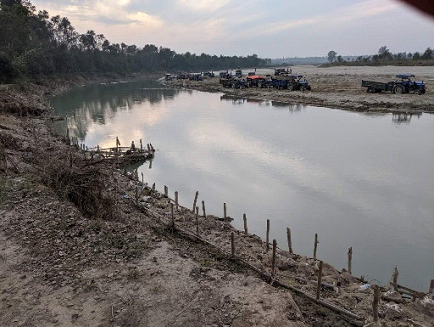


| Client: | The World Bank |
| Funding Agency: | The World Bank |
| Period: | Nov 2021 to Oct 2022 |
| Consulting Association: | Joint Venture of ICEM Asia and GEOCE Consultants (P) Ltd |
| Approx. Value of Services: | Total US$ 299,500, GEOCE’s part- US$ 46,285 |
| Professional Staff Input: | ICEM- 9 person months and GEOCE-12 person months |
Salient Details
The objective of this Technical Assistance is to support selected municipalities to address the issue of insufficient planning, design, quality, and high vulnerability of urban transport infrastructure to climate-related disasters in Nepal’s urban areas.
The work will contribute towards safeguarding the quality and sustainability of infrastructure investments under Nepal Urban Governance Infrastructure Project (NUGIP) (funded by World Bank) and improved capacity to develop and implement design guidelines at the national level.
The scope of consultant’s services comprises the following activities:
(1) Support City of Pokhara (second biggest city of Nepal) in the development of Road Assets Management System (RAMS) including integration of climate and disaster risk and vulnerability assessment;
(2) Support a selected strategically important municipality to undertake hazard mapping and vulnerability and risk assessment, in alignment with Risk Sensitive Land Use Plans and to help inform current and future investment and urban planning decisions. Urlabari is selected as the strategically important municipality for this. Both Pokhara and Urlabari are NUGIP cities.
(3) Support Nepal’s Ministry of Urban Development (MoUD) and the Department of Urban Development and Building Construction (DUDBC) to be introduced to the best international practices in guidelines and standards for the design of resilient roads and drainage; and (4) support for strengthening the institutional systems of municipalities for sustainable asset management and O&M of selected municipalities, including capacity building and training of federal level stakeholders and provincial staff.





